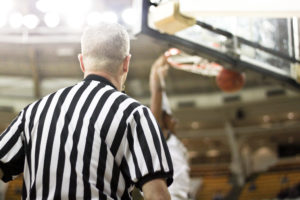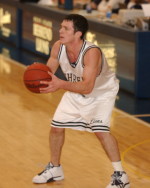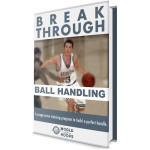This post may not fit a traditional guide on basketball training I was fortunate to understand from an early age that dealing with referees is an art form. This post is designed to help players and coaches understand how to work referees.

Referees are can be delicate creatures. Sometimes people think they are unbiased, call fouls as they see them, they prefer to be invisible. The best referees are unbiased and call the game as accurate as they can. But the truth is, they are people. Referees get offended when you are condescending toward them, they get embarrassed about making a bad call, they can lose focus briefly, and some of them have egos.
Stop yelling
The first thing you need to do (especially players) is stop yelling at officials. In 30+ years I have seen only a few calls reversed; I have seen tens of thousands of calls not reversed. Yelling at an official will not get the call changed. It also challenges them in front of the crowd, their peers, and all the players. This will often make them LESS likely to give you the next call. This also applies to complaining about calls and reacting dramatically to calls.
Talk to them
Next, you need to learn to talk to an official like you would to a teammate, friend, colleague, or teacher/professor. When you have a question about a call or you disagreed with a call, it is okay to talk to them about (well…most of them). However, don’t whine, complain, or be rude about it. Simply talk to them like you would talk to another person. Tell them calmly what you thought and ask them what they saw. Refs appreciate this and will remember it.
Build a relationship
As you learn to start talking to the refs, you will start to build a relationship with them. Talk to them occasionally during dead balls or breaks in the action about non-foul related items; make a joke once in a while. Even find out there name and call them by it. It’s amazing how all of this works. You can create relationships where the ref will actually admit to you they missed a call (they won’t reverse it, but they will fess up), they will start to listen to your explanation and take it into account the next time they make a call. Also, the next time you want to give them a heads up (something like: watch out for #12 he is pushing off on every out of bounds play OR watch #34’s off-arm, he is hooking every time) they will actually listen and watch for it.
Often in high school and even college you will have the same ref multiple times in a season. If you create a relationship with them they will remember you next time. I can still remember refs from high school and college, if I saw them reffing a game today I would go up to them, call them by their first name, and have a conversation with them.
Shake hands at the end
No matter what, find the refs at the end of the game: find the refs, thank them, and shake their hand. It is basketball, it is a game. Refs have bad games just like players do. Ultimately, everyone is trying to do their best.
At the end of the day, if you want to be successful, it helps to have a good relationship with the referees.
photo credit: Will Folsom
 He has 25 years of experience playing basketball, training basketball players, and coaching basketball. The World of Hoops provides intelligent and intense basketball training to take basketball players to the next level.
He has 25 years of experience playing basketball, training basketball players, and coaching basketball. The World of Hoops provides intelligent and intense basketball training to take basketball players to the next level. The Pivot Foot – Which Foot to Use – Permanent vs. Switching
The Pivot Foot – Which Foot to Use – Permanent vs. Switching The Best Basketball Gifts and Products
The Best Basketball Gifts and Products Ball Handling Ep. 9 – Breakthrough Ball Handling
Ball Handling Ep. 9 – Breakthrough Ball Handling Basketball Ball Handling Ep. 6 – All the Ball Handling Drills
Basketball Ball Handling Ep. 6 – All the Ball Handling Drills




Nice article Joe. Too many people forget that its “a game” – not the army.
Gary